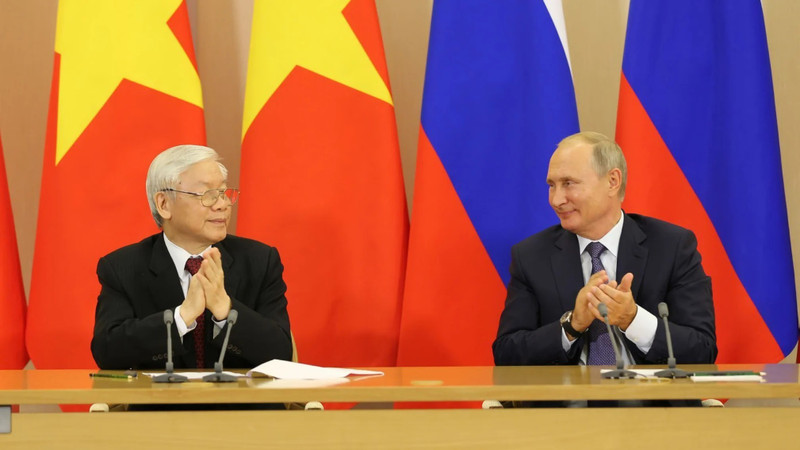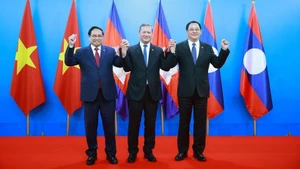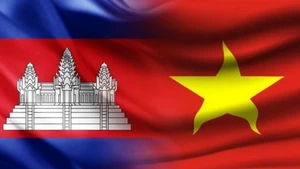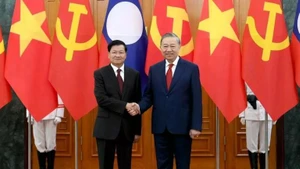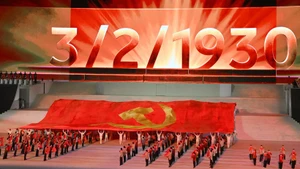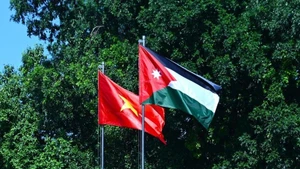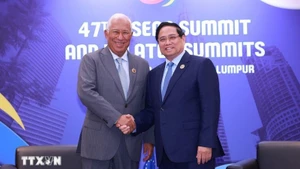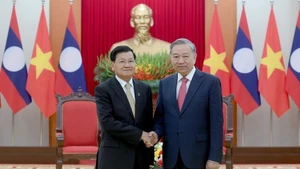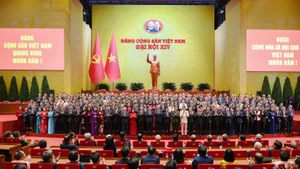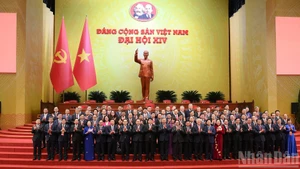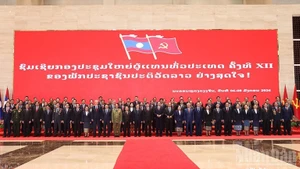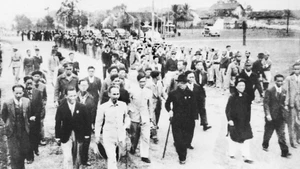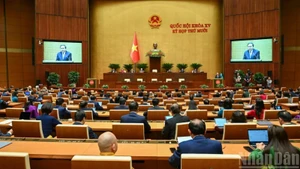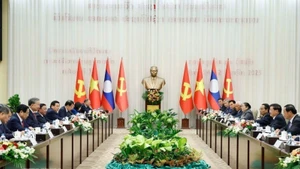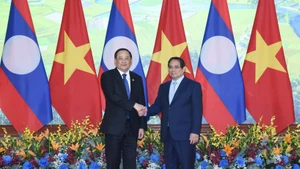The visit is expected to deepen and enhance the comprehensive strategic partnership between Vietnam and the Russian Federation, especially as the two countries are actively implementing the Joint Statement on 2030 Vision for Development of the Comprehensive Strategic Partnership.
Vietnam and the former Soviet Union established diplomatic relations on January 30, 1950. After more than 70 years with incessant efforts from the generations of leaders and people of both countries, Vietnam and Russia have made giant steps on their path of cooperation for mutual development.
In 1994, Vietnam and Russia signed the Treaty on Principles of Friendly Relations, which laid the groundwork and legal basis for the bilateral relationship in new period. The two countries upgraded their ties to a strategic partnership in 2001 and to a comprehensive strategic partnership in 2012. In 2021, the two countries issued a Joint Statement on 2030 Vision for Development of the Comprehensive Strategic Partnership.
The new legal basis for the cooperative relationship between Vietnam and Russia has been almost fully built and continues to be perfected. Since 1991, the two countries have signed over 100 cooperative documents across all fields, including economics, trade, investment, oil and gas, nuclear power, education-training, culture, science and military engineering.
Recently, the political trust between Vietnam and Russia has been continually strengthened. Frequent high-level delegation exchanges are strong drivers for the development of the comprehensive strategic partnership between the two countries. Since 2020, amid the COVID-19 pandemic, bilateral high-level exchange activities were maintained regularly through phone talks and virtual meetings between the two countries’ key leaders. After the pandemic was pushed back, delegation exchanges have become busy again.
The two sides have maintained numerous coordination and dialogue mechanisms, such as the annual diplomacy-defence-security strategic dialogue at the permanent deputy foreign ministerial level and defence strategic dialogue at the defence deputy ministerial level. During the phone talks with Russian President Vladimir Putin on March 26, 2024, General Secretary Nguyen Phu Trong affirmed that Vietnam attaches importance to the Vietnam-Russia Comprehensive Strategic Partnership and wishes to strengthen bilateral cooperation on the basis of trust and mutual benefit.
The foundation of political trust is the momentum for Vietnam and Russia to make solid steps on the path of cooperation. Bilateral economic cooperation is developing dynamically. The two countries have maintained the mechanism of the Inter-governmental Committee for Economic, Trade and Scientific-technical Cooperation, which was established in 1992 and upgraded to the deputy prime ministerial level in 2011. Two-way trade reached 3.63 billion USD in 2023 and 1.11 billion USD in the first quarter of 2024.
Regarding investment, the Russian side has 186 investment projects in Vietnam, with total registered capital of 984.98 million USD as of April 2024, ranking 28th among the countries and territories investing in Vietnam. Russia ranked fourth among 80 countries and territories receiving Vietnamese investment. Russian investment projects cover oil and gas, mining, processing industries, and manufacturing in 21 localities. Vietnam has 18 investment projects in Russia, with total registered capital of 1.63 billion USD. Bilateral investment still has much room for further development, especially since the free trade agreement between Vietnam and the Eurasian Economic Union, of which Russia is a member, took effect in 2016.
Bilateral cooperation in the fields of culture, tourism, science-technology, and security-defence is also developed. In the past, the Soviet Union helped Vietnam train nearly 40,000 officials and experts in many different specialties. Currently, Russia continues to support Vietnam in human resources training. Since 2019, Russia has increased the number of scholarships for Vietnam to about 1,000 per year. More than 5,000 Vietnamese students are currently studying in Russia. The Vietnamese community in Russia has made many contributions to strengthening the traditional relationship between the two countries.
Russian President Vladimir Putin’s state visit to Vietnam comes at a time when the traditional friendly relationship and the Vietnam-Russia Comprehensive Strategic Partnership are developing well. Vietnam determines the relationship with Russia as strategically important and regards Russia as a crucially important partner in its foreign policy. Russia regards Vietnam as a trusted partner and one of the top priorities in its foreign policy in the Asia-Pacific region. In 2024, the two countries mark the 30th anniversary of the Treaty on Principles of Friendly Relations and are looking to celebrate 75 years of diplomatic ties in 2025.
As a new important milestone in the traditional friendly relations and Comprehensive Strategic Partnership, the visit helps to promote the strong development of Vietnam-Russia relations, bringing substantive benefits to the people of both countries, for peace, stability, cooperation and development in the region and the world at large.
